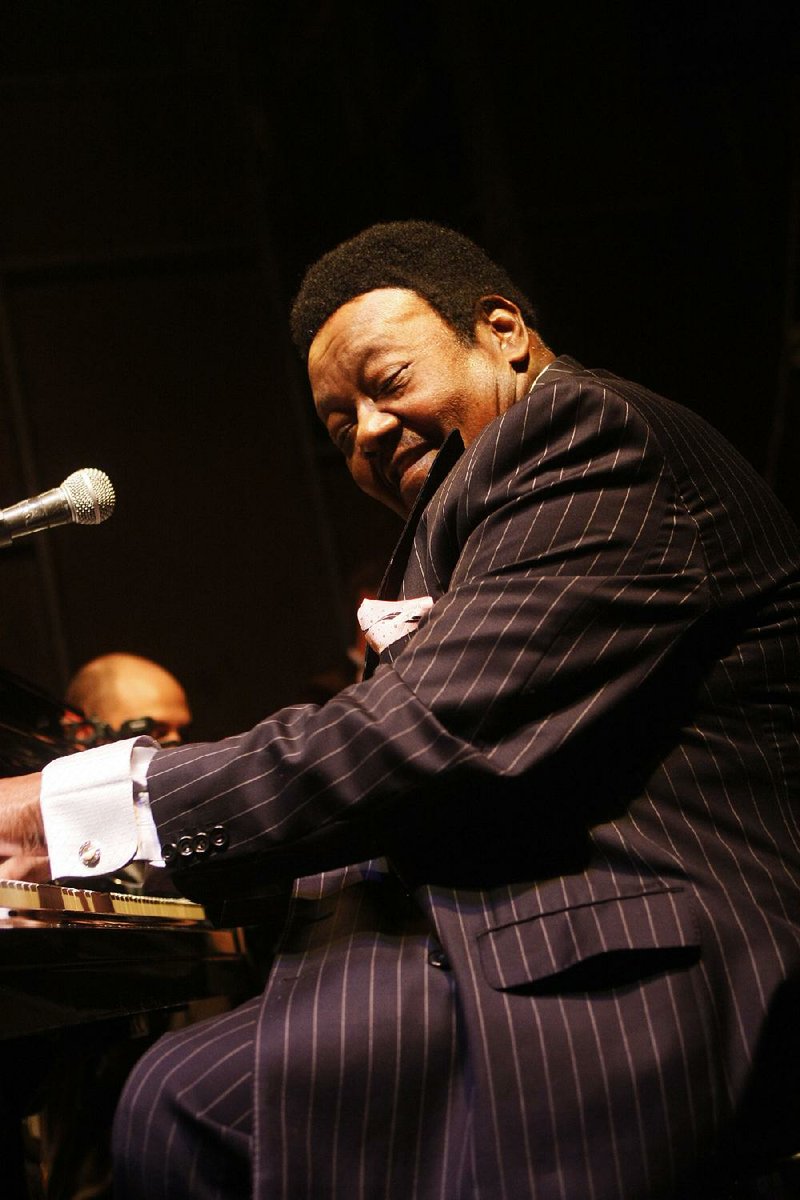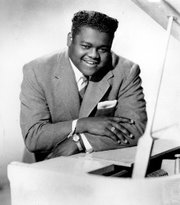NEW ORLEANS -- Fats Domino, the amiable rock 'n' roll pioneer whose steady, pounding piano and easy baritone helped change popular music while honoring the traditions of the Crescent City, has died. He was 89.
Mark Bone, chief investigator with the Jefferson Parish, La., coroner's office, said Domino died of natural causes early Tuesday.
In appearance, he was no matinee idol. He stood 5 feet 5 inches tall and weighed more than 200 pounds, with a wide, boyish smile and a haircut as flat as an album cover. But Domino sold more than 110 million records, with hits including "Blueberry Hill," "Ain't That a Shame" -- originally titled "Ain't It A Shame"-- and other standards of rock 'n' roll.
He was one of the first 10 honorees named to the Rock and Roll Hall of Fame. The Rolling Stone Record Guide likened him to Benjamin Franklin, the beloved old man of a revolutionary movement.
"We've lowered the flag and we're playing his music all day," said Greg Harris, CEO of the Rock and Roll Hall of Fame.
"Fats is the godfather of rock 'n' roll," Harris said.
"I can't wrap my arms around him being gone," said Quint Davis, producer of the New Orleans Jazz and Heritage Festival and a decadeslong friend of Domino. He said only two people from New Orleans have changed the music of the world: jazz legend Louis Armstrong and Fats Domino.
Domino's dynamic performance style and warm vocals drew crowds for five decades. One of his show-stopping stunts was playing the piano while standing, throwing his body against it with the beat of the music and bumping the grand piano across the stage.
His 1956 version of "Blueberry Hill" was selected for the Library of Congress' National Recording Registry of historic sound recordings worthy of preservation.
Domino became a global star but stayed true to his hometown, where his fate was initially unknown after Hurricane Katrina struck in August 2005. It turned out that he and his family were rescued by boat from his home, where he lost three pianos and dozens of gold and platinum records, along with other memorabilia.
After losing the family's home and almost all their belongings to the floods, Domino's wife of more than 50 years, Rosemary, died in April 2008.
Domino moved to the New Orleans suburb of Harvey after the storm but often visited his publishing house, an extension of his old home in the Lower Ninth Ward, inspiring many with his determination to stay in the city he loved.
"Fats embodies everything good about New Orleans," his friend David Lind said in a 2008 interview. "He's warm, fun-loving, spiritual, creative and humble. You don't get more New Orleans than that."
The son of a violin player, Antoine Domino Jr. was born Feb. 26, 1928, one of nine children. As a youth, he taught himself popular piano styles -- ragtime, blues and boogie-woogie.
He quit school at age 14 and worked days in a factory while playing and singing in juke joints at night. In 1949, Domino was playing at the Hideaway Club for $3 a week when he was signed by Imperial record company.
He recorded his first song, "The Fat Man," in the back of a tiny French Quarter recording studio.
In 1955, he broke into the white pop charts with "Ain't It a Shame." Domino enjoyed a parade of successes through the early 1960s, including "Be My Guest" and "I'm Ready." Another hit, "I'm Walkin,'" became the debut single for Ricky Nelson.
Like many of his peers, Domino's popularity tapered off in the 1960s as British and psychedelic rock held sway.
"I refused to change," he told Ebony magazine. "I had to stick to my own style that I've always used or it just wouldn't be me."
In 1998, he became the first purely rock 'n' roll musician to be awarded the National Medal for the Arts. But he cited his age and didn't make the trip to the White House to get the medal from President Bill Clinton.
Aside from rare appearances in New Orleans, including a 2012 cameo spot in the HBO series Treme, he dodged the spotlight in his later years, refusing to appear in public or even to give interviews.
Information for this article was contributed by Hillel Italie and Kevin McGill of The Associated Press.
A Section on 10/26/2017

